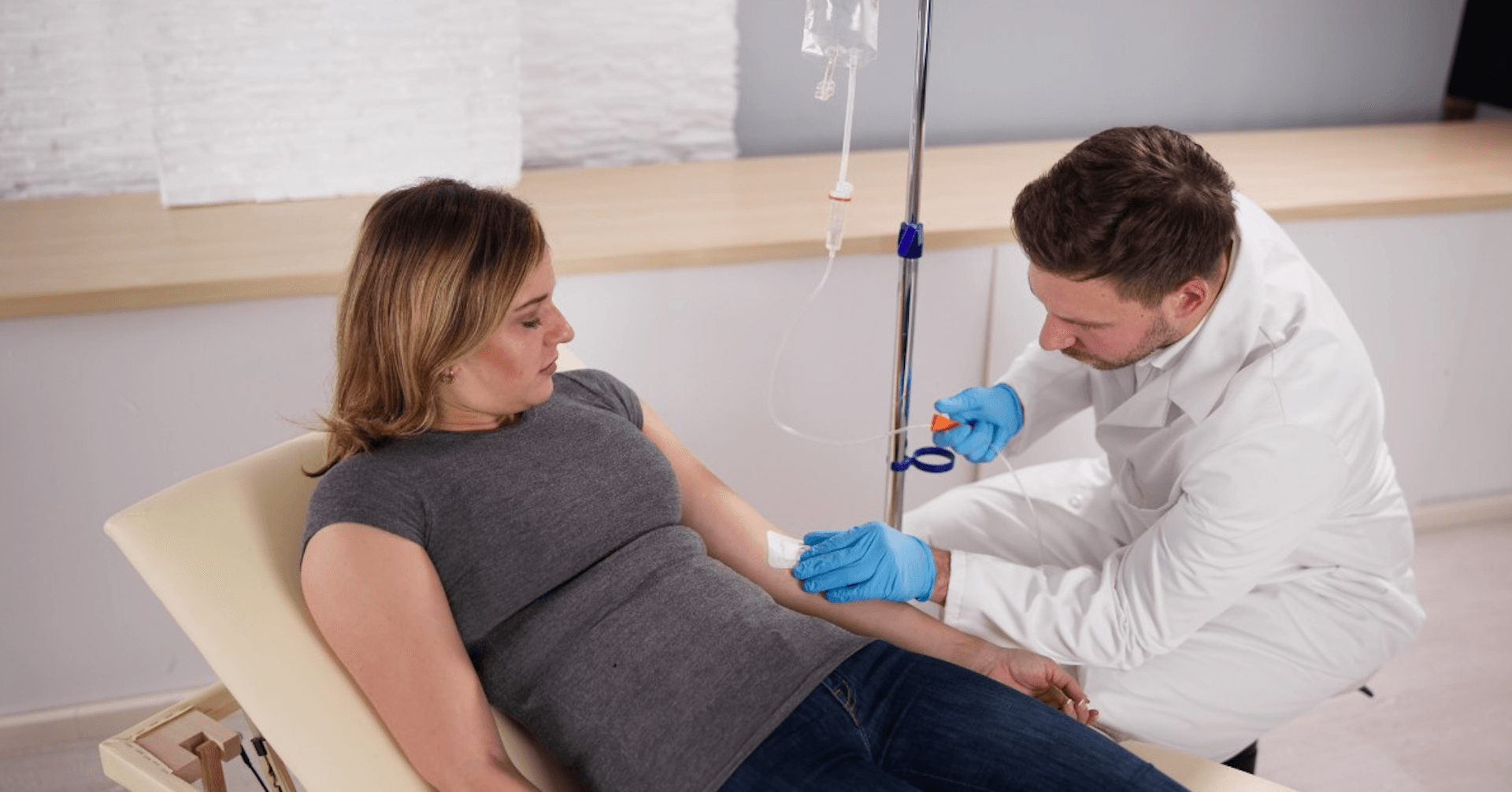Can Ketamine Trigger Panic Attacks? What You Should Know


: Wondering can ketamine cause panic attacks? Learn the possible triggers, risks, and what to do if you experience anxiety or panic after ketamine use.
Ketamine, once known solely as a surgical anesthetic, is now being used in clinical settings to treat depression and anxiety. But for some, its effects may include distressing psychological responses—raising a valid concern: can ketamine cause panic attacks?
At The Forge Recovery Center, we understand how overwhelming these experiences can be for you or your loved one. Whether you're exploring ketamine therapy or navigating its side effects, it's crucial to understand both its potential and its risks. In this article, we will explore how ketamine may trigger panic attacks, who is most at risk, and how to stay safe.
Understanding Ketamine's Psychological Effects

Ketamine works differently from traditional antidepressants. It targets the brain’s glutamate system by blocking NMDA receptors, which helps reset certain neural pathways. This unique mechanism can rapidly relieve depressive symptoms, especially in treatment-resistant cases. However, it also alters perception—often leading to dissociative or hallucinogenic effects that can make you feel detached from reality.
While you might experience emotional clarity or a deep sense of calm, there’s also a chance you could feel unsettled. Some people report hallucinations, confusion, or a sense of losing control—feelings that can quickly spiral into anxiety or a panic attack. The setting, your mindset, and whether you're being monitored closely can all influence how you respond.
If you already struggle with anxiety, ketamine’s mind-altering effects could amplify those symptoms instead of easing them. Though it’s known for rapid antidepressant results, ketamine isn’t a one-size-fits-all solution. Everyone reacts differently, and without the right support, your mental health could take a turn for the worse before it improves.
That’s why The Forge Recovery Center emphasizes safe, supervised care. We tailor every treatment plan to your needs, helping you explore the potential of ketamine therapy while protecting your mental and emotional well-being.
Factors Contributing to Panic Attacks During Ketamine Use

If you’ve ever wondered why some people experience calm or relief from ketamine while others spiral into anxiety or panic, the answer lies in a few critical variables. Panic attacks during ketamine use aren’t random—they’re often tied to factors like dosage, individual mental health history, and the environment in which the drug is administered. Understanding these risks is key to making informed decisions about your care or supporting a loved one through treatment.
Dosage and Administration
Ketamine’s effects vary dramatically depending on the dose. When administered correctly in a clinical setting, a low dose can help interrupt depressive thought patterns and produce relief.
But when the dose is too high—or not tailored to your body weight and mental health profile—it can lead to overwhelming dissociation, confusion, and even feelings of detachment from self or reality. These sensations, while temporary, can be terrifying and may trigger a panic attack if you aren’t mentally prepared or supported during the experience.
Individual Differences
Your personal mental health history plays a huge role in how you’ll respond to ketamine. If you live with generalized anxiety, panic disorder, PTSD, or past trauma, you may be more vulnerable to adverse psychological effects.
Ketamine’s dissociative nature can stir up suppressed emotions or thoughts, sometimes making things worse before they get better. That’s why pre-treatment evaluations are so important—they help determine whether ketamine is a safe option for your specific needs.
Setting and Supervision
Ketamine is not a drug you should take casually or alone. Using it in non-clinical or recreational environments dramatically increases your risk of experiencing a panic attack. Without medical supervision, you have no one to help ground you if things go wrong.
Clinical settings provide structured support: trained professionals, calming environments, and protocols to manage any negative psychological responses. At The Forge Recovery Center, we ensure every ketamine treatment is administered under expert care, so you’re never alone if things feel overwhelming.
Whether you’re considering ketamine treatment for yourself or supporting someone else, it’s crucial to factor in these variables. Proper dosing, individualized screening, and a safe environment make all the difference between a healing experience and a distressing one.
Are You Struggling with Mental Health or Addiction?
We Can Help. Call Us Now!
CALL: 877-839-1772
Clinical Observations and Research Findings
As ketamine continues to gain traction as a rapid-acting antidepressant, clinical data is starting to paint a more nuanced picture of its effects—especially when it comes to anxiety and panic responses during treatment. While many individuals report significant short-term relief, the experience is not universally positive, and for some, ketamine may provoke or worsen anxiety symptoms.
Anxiety During Infusions

Clinical observations show that anxiety is not uncommon during ketamine infusions, particularly during a patient’s first few sessions. In fact, studies suggest that patients who experience heightened anxiety or panic during their infusions often have poorer overall treatment outcomes.
This isn’t just about discomfort—it may reflect how your nervous system responds to the drug’s dissociative effects. If your brain interprets those sensations as threatening or destabilizing, the stress response can override any potential mood-lifting benefits.
For individuals who already deal with panic disorder, PTSD, or trauma-related conditions, these episodes can feel especially intense. The altered perception ketamine produces can surface buried emotions or trigger fear-based responses, leading to a full-blown panic attack mid-infusion if not properly managed.
Temporary Nature of Effects
Another key consideration from research is that ketamine’s therapeutic effects, while fast-acting, are typically short-lived. Some individuals feel relief within hours or days—but the benefit often fades within one to two weeks. As the effects wear off, unresolved anxiety can return or even intensify, especially if no long-term therapeutic plan is in place.
At The Forge Recovery Center, we emphasize that ketamine is not a standalone cure—it’s a tool. We integrate ketamine therapy into a broader recovery strategy, including counseling, aftercare, and personalized mental health support to help you manage not just depression, but the full spectrum of emotional challenges that come with it.
Managing and Mitigating Risks
While ketamine has shown promise for treating depression and other mood disorders, it’s not without risks—especially for those prone to anxiety or panic attacks. However, with the right approach and clinical safeguards in place, you can significantly reduce the chances of experiencing adverse psychological effects. At The Forge Recovery Center, our goal is to help you get the most out of treatment while keeping you safe, supported, and informed every step of the way.
Pre-Treatment Assessment
The first step in minimizing risk is knowing your history. Before starting ketamine therapy, we conduct a thorough pre-treatment assessment. This includes evaluating your mental health background, current symptoms, trauma history, and any existing anxiety disorders. If you’re already prone to panic attacks, dissociation, or emotional dysregulation, these factors are taken into account when tailoring your treatment. Skipping this step—or rushing into ketamine therapy without a full clinical picture—can dramatically increase the likelihood of a negative experience.
Controlled Environment
Ketamine should never be taken casually or without professional oversight. A controlled, supervised clinical setting is essential. At The Forge Recovery Center, ketamine treatments are administered by trained professionals in a calming, structured environment where your physical and emotional responses are closely monitored. This allows for immediate support if any distressing side effects—like anxiety or panic—arise during your session. The setting alone can make the difference between a therapeutic breakthrough and a traumatic event.
Integration with Therapy
Ketamine isn’t a magic bullet. To create lasting change, it must be paired with psychotherapy and emotional support. That’s why we integrate talk therapy and trauma-informed care alongside ketamine treatments. Processing your experiences, identifying emotional triggers, and working through difficult memories can amplify the benefits of ketamine while helping you build resilience against panic and anxiety long-term.
By combining clinical expertise with compassionate care, The Forge Recovery Center ensures that ketamine therapy is not only safe but also transformative—for your body, mind, and future.
Are You Struggling with Mental Health or Addiction?
We Can Help. Call Us Now!
CALL: 877-839-1772
The Forge Recovery Center’s Approach

At The Forge Recovery Center, we understand that no two recovery journeys are the same—especially when it comes to complex treatments like ketamine therapy. That’s why our approach is built on personalization, integration, and safety, ensuring that every step you take toward healing is grounded in clinical expertise and compassionate support.
Personalized Treatment Plans
Your mental health history, substance use background, and current challenges are unique to you—and your treatment should reflect that. Before initiating ketamine therapy, we take the time to understand your full story. This includes evaluating whether ketamine is the right option for your specific needs, and if so, determining the appropriate dosage, schedule, and therapeutic support. Whether you're navigating depression, anxiety, trauma, or dual diagnoses, your care plan is designed specifically for you, not a generic protocol.
Comprehensive Care
Ketamine is just one part of the equation. At The Forge Recovery Center, we combine medical treatment with a full spectrum of therapeutic services, including one-on-one counseling, group therapy, trauma-informed care, and holistic wellness practices. Our goal isn’t just to alleviate symptoms temporarily—it’s to help you build long-term emotional strength, resilience, and clarity. When ketamine is integrated into a broader recovery plan, its benefits are more sustainable and deeply rooted.
Commitment to Safety
Safety isn’t a side note—it’s central to everything we do. Ketamine sessions at The Forge Recovery Center take place in a structured, supervised clinical setting where your physical and emotional well-being are monitored in real time. Our staff is trained to recognize signs of distress and respond immediately, giving you the confidence to explore treatment without fear. Continuous support doesn’t end after your session—we remain involved through aftercare, follow-ups, and progress reviews.
With The Forge Recovery Center, you’re never navigating treatment alone. You have a dedicated team committed to helping you heal, grow, and move forward—safely and confidently.
Ketamine Treatment Raising Questions? We're Here to Help
While ketamine offers promising benefits for depression and other mental health conditions, it’s not without risks—especially if you’re prone to anxiety or panic attacks. Understanding both the potential and the limitations of ketamine is key to making informed choices. If you're struggling with side effects or unsure if this treatment is right for you, you're not alone. At The Forge Recovery Center, we offer personalized, compassionate care to help you find a safe path to healing. Reach out today—we’re here to help you take your life back.
Are You Struggling with Mental Health or Addiction?
We Can Help. Call Us Now!
CALL: 877-839-1772





